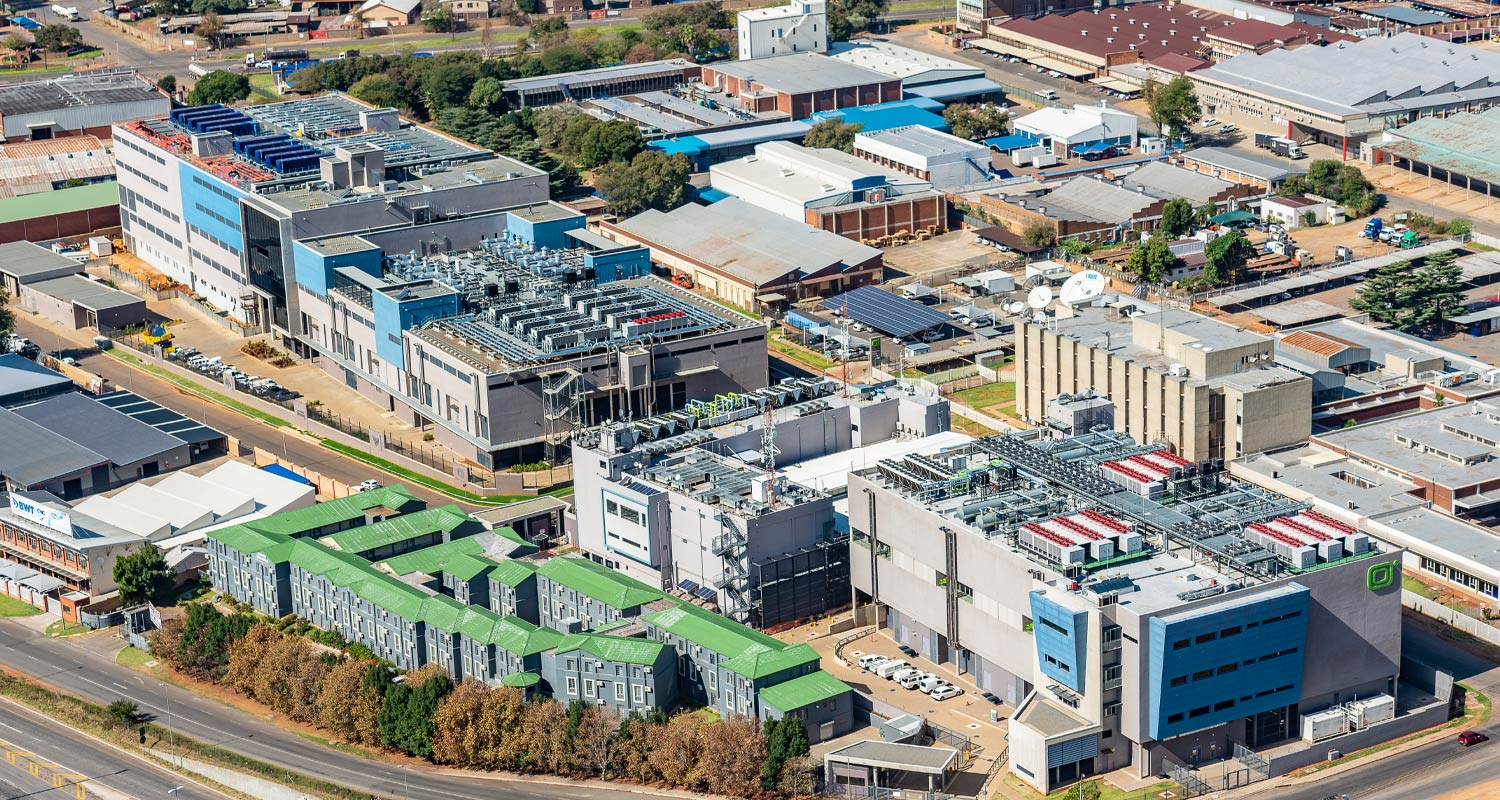
Gauteng has become the epicentre of massive new data centre builds in recent years, with the sprawling IT facilities serving customers not only in South Africa but across the continent.
However, the recent water supply problems in Gauteng – South Africa’s smallest but richest province – have raised concerns about the potential impact on data centres, particularly when it comes to the huge air-conditioning systems they use to keep server equipment from overheating. Servers need to be kept within certain temperature and humidity limits to function optimally.
Fortunately, most of the data centres in metros like Johannesburg, Ekurhuleni and Tshwane are relatively new and, as a result, employ modern cooling systems that don’t require ongoing use of water.
Jan Hnizdo, CEO of Teraco, told TechCentral that older data centres tended to use “evaporate cooling”, which consumes considerable quantities of water on an ongoing basis. However, newer systems – including those deployed by Teraco – don’t need to be constantly replenished.
“Because of our scale, we focused on using as little energy and water as possible,” Hnizdo said in an interview. “We can’t control the IT loads – that’s up to our clients – but we can control the data centre cooling.”
Teraco, like many other local data centre operators, uses a closed-loop “free cooling” system. “Closed loop” means that once the air conditioning system pipes have been filled with water, there’s isn’t a need to refill them continuously.
“Chillers on the roof cool the water, and we then bring cold water into the air handling units in the data centre. There is no evaporation,” Hnizdo explained. “Then, on top of that, we have designed something called ‘free air cooling’.”
Closed loops
Teraco’s data halls typically run at an ambient temperature of between 18C and 27C. When the temperature declines below 18C – which typically only happens in the winter months in Gauteng – then instead of using refrigeration, Teraco brings in outside air, first removing dust particles, and then piping this air into the data halls, reducing power consumption.
Even though its air conditioning systems don’t require a constant supply of water, Teraco has deployed boreholes at its facilities, and collects rainwater from rooftops, which it uses for on-site water needs, including cleaning and flushing toilets.
“In the event that there is a cut in the water supply, we have the ability to self-sustain indefinitely,” Hnizdo said. “We designed it like that, in case a main municipal line got cut, for example.
Read: How data centres are battling South Africa’s energy crisis
“Also, the efficiencies from closed-loop [cooling] systems are way better. It is a much higher upfront cost – you are investing way more – but the payback is using less electricity and water in the cooling process.”
Africa Data Centres has a similar approach. Angus Hay, the company’s regional executive for South Africa, told TechCentral that its water consumption for its cooling systems is “very close to zero” because it, too, uses closed-loop cooling systems.

“The chillers are air-cooled, and water is used inside a closed loop to carry heat from computer room air-handling units to the chillers. A very small amount of water is used in the system if we need to raise the humidity in the colocation environment to within the specified range,” he explained.
“Occasionally, there is a need to top up closed-loop systems, and of course, some types of maintenance may require refilling pipes. However, the performance parameter that we track, called ‘water usage effectiveness’ – WUE is calculated by dividing data centre water consumption in litres by IT equipment energy consumption in kilowatt-hours – is very close to zero for all of our data centres.”
Hay said that although Africa Data Centres does not consume water in its cooling equipment, it does store water for essential purposes in on-site tanks at some of its facilities.
“Some of our modern, mist-based data centre fire suppression systems, and even general office sprinkler systems, for example, have local water storage, so that we are not dependent on external water supply in the event of a fire. We also have borehole systems on some of our sites to ensure continuity of water supply, with on-site storage tanks,” he said.
“Of more interest, given the current challenges in Gauteng, is what we implemented at our CPT1 Diep River facility in Cape Town during the water crisis in that city. As the city approached Day Zero, and there was increased risk of water shortages, including for the communities around our data centre, we deployed an atmospheric water generator system on the site, which condensed water from the air to provide for the essential water requirements on the campus, without having to access ground water resources or mains water. We produced enough water to allow us to share it with the surrounding community during shortages. The system remains active today as a backup water supply, in case of shortages,” Hay said.
Modernisation
NTT Data – previously Dimension Data – recently completed construction of a huge new data centre north of Midrand in Johannesburg. A spokeswoman for the company said this facility, called Johannesburg 1, also makes use of a closed-circuit water system for its cooling needs.
“Ongoing water usage in modern data centres is typically limited to water used for human consumption, cleaning and restrooms. Older data centres did employ cooling that was reliant on municipal water, but this is typically no longer the case with modernisation of data centre infrastructure and newly built data centres,” she said. – © 2024 NewsCentral Media

